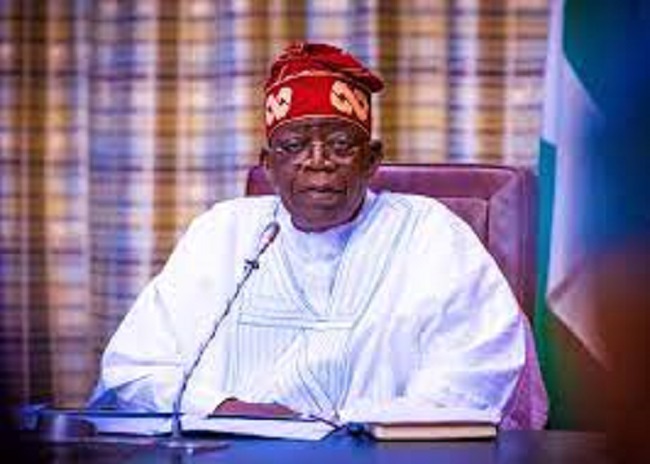President Bola Ahmed Tinubu has been called upon to frontally tackle the extant stifling inflation bedeviling the country through the instrumentality of providing subsidy on sectors such as agriculture, education, health services and aviation, which will impact directly on the people.
Economic and finance experts, including a former Lagos State Commissioner for Finance, Dr. Abiodun Mustapha Akinkunmi, former Director General of Lagos Chamber of Commerce and Industry (LCCI), Dr. Muda Yusuf, Dr. Biodun Adedipe, among others made the call, as they spoke at a lecture themed: “Transforming crisis into opportunity: Charting a new Economic course for Nigeria,” held to celebrate the 97th Anniversary of Yoruba Tennis Club.
They said President Tinubu should embark on such rather than implementing the highly proposed wage increase to cushion the impact of the petroleum subsidy removal on workers, pointing out that the galloping inflation on food prices could be controlled through massive investment in agriculture as a drive towards import substitution.
According to them, a massive import substitution strategy which will encourage local production of goods hitherto imported could reduce the drain on Nigeria’s foreign reserves.
This was just as they demanded that President Tinubu-led Federal Government “should, through due process, modify the presidential system as practised in Nigeria to reduce the prohibitive cost of governance, devolve more powers and resources to the states and local governments where the majority of Nigerians inhabit in order to unleash the humongous human resources and talents for a greater and more prosperous Nigeria.”
In a communique issued at the end of the presentation and interactive session and signed by Bro Bayo Ayo, the speakers and others, who highlighted laudable efforts of President Tinubu’s administration in tackling multifarious economic challenges, commended the regime, expressing optimism “that after a turbulent night comes a glorious dawn.
They, however, tasked the Tinubu-led Federal Government to do more to address extant socio-economic inequity through the expansion of the social security safety net, saying that the Nigerian economy should be managed for the common good with a greater focus on the middle class in order to enhance communal prosperity.
Besides, the communique suggested that fiscal and economic policies should be directed at lowering interest rates on local borrowing in order to stimulate growth in the economy.
Other highlights of the 10-point communique are: The session advocates a prioritisation of local refining of petroleum products, decentralization (to the sub-nationals) of power generation, transmission and distribution together with the exploration of other renewable energy sources. Nigerians should be encouraged and
incentivized to grow and consume what they produce to boost local food production and industrialization. Such policy drive would boost investors’ confidence to source and utilize 50% of materials locally for manufacturing.
“The adoption of price control mechanism, reconstitution of Commodity Market Boards and allied institutions could bolster efforts at reducing food prices.
“Deliberate guidelines should be issued for a multi-sectoral approach to managing national security to create a conducive environment for businesses, foreign direct investments, ensure food security, availability, quality and affordability.
“While commending President Tinubu’s approach to encouraging foreign direct investment in Nigeria, the session recommended the adoption of a sustainable and inclusive approach to managing the unification of the
hitherto dual Foreign Exchange rates.
“Politics and the Economy are Siamese twins. Governments globally exist for the socio-economic well-being of the people they serve. The session recommended that the Tinubu administration should, through due process, modify the presidential system as practised in Nigeria to reduce the prohibitive cost of governance, devolve more power and resources to the states and local governments where the majority of Nigerians inhabit in order to unleash the humongous human resources and talents for a greater and more prosperous Nigeria.”
READ ALSO FROM NIGERIAN TRIBUNE
WATCH TOP VIDEOS FROM NIGERIAN TRIBUNE TV
- Let’s Talk About SELF-AWARENESS
- Is Your Confidence Mistaken for Pride? Let’s talk about it
- Is Etiquette About Perfection…Or Just Not Being Rude?
- Top Psychologist Reveal 3 Signs You’re Struggling With Imposter Syndrome
- Do You Pick Up Work-Related Calls at Midnight or Never? Let’s Talk About Boundaries






